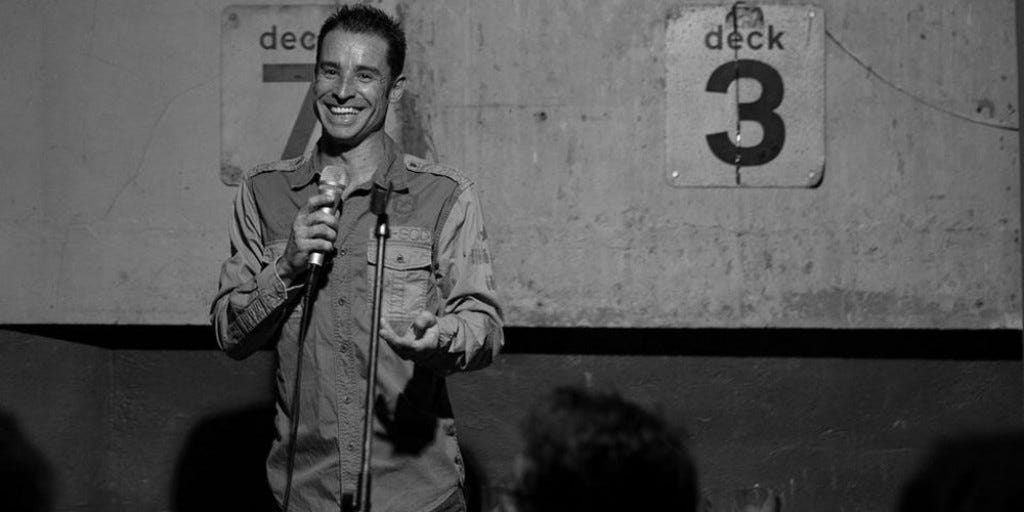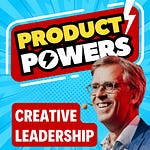Laughter isn't just a break from the mundane, it's a tool for improving health and strengthening human connection. In the tech world, where logic often dominates, injecting humour can transform a typical presentation into a memorable experience, encouraging more engagement and lighter spirits.
Contents
Alfie Noakes: Stand-up Comedy MC and Promoter
The Origin Story
Comedy as a Hobby
Live Workshops
Observing and Learning
Rejecting the Joke Request
Encouraging People to Try Stand-up Comedy
Incorporating Humor into Talks/Workshops
Structuring a Joke
Crowd Work and Spontaneity
Online Courses
Importance of Body Language
Teaching Funny vs. Being Funny
Plan B for Unfunny Moments
Resources and Contact Information
FAQs
🎤 Alfie Noakes: Stand-up Comedy MC and Promoter
Alfie Noakes, a London-based stand-up comedy MC and promoter, brings light and laughter wherever he goes. With a history rich in media and public relations, Alfie transitioned from film production to the comedic stage, crafting a unique niche in the comedy world.
🎬 The Origin Story
Alfie's career pivoted when he skipped film school for a production job offered during his appearance on a film TV show. He nurtured a successful freelance career in cinema programming, creating a catalogue of notable movie shows throughout the 90s and 00s.
🎟️ Comedy as a Hobby
Comedy started as a hobby for Alfie when he assisted a friend in managing an open mic night. His casual interest soon morphed into a thriving business, launching the "We Are Funny Project", which now celebrates 10 years of regular comedy events and workshops designed to foster new comedic talent.
🏫 Live Workshops
Alfie’s business doesn’t just stop at performances. He offers workshops that bring professional comedians and MCs to teach amateur comedians vital skills in comedy writing and performance, enriching their capabilities in humour and timing—key skills for effective public speaking.
🌟 Observing and Learning
Over 10,000 performers have graced Alfie's stages, providing him with insights into what makes or breaks a comedy act. These observations are crucial for teaching comedic timing and delivery, essential skills that also benefit public speakers.
❌ Rejecting the Joke Request
Alfie believes that the context in which a joke is delivered is vital. He emphasises that a joke that works in a live comedy environment may not translate well to an audio podcast, demonstrating the nuanced understanding required to use humour effectively.
🚀 Encouraging People to Try Stand-up Comedy
According to Alfie, attempting stand-up comedy should be on everyone's bucket list. It builds confidence, public speaking skills, and the ability to engage an audience—skills that are incredibly beneficial in the professional sphere, especially in technology-related fields.
🎭 Incorporating Humour into Talks/Workshops
To improve public speaking with stand-up comedy, start with your strongest joke, pepper humour throughout, and close powerfully. This strategy not only captures attention but also helps in maintaining audience engagement, making technical presentations more impactful.
📏 Structuring a Joke
In a typical 5-minute set, aiming for 15 strong laughs is ideal. Pacing and the arrangement of punchlines should be considered carefully to keep the audience engaged—a technique that can be mirrored in tech presentations or pitches to increase engagement.
🎉 Crowd Work and Spontaneity
Proficient comedians often seem spontaneous, but their delivery is usually well-practiced and perfected over time. This ability to appear spontaneous is something tech professionals can adopt to make their dialogues and presentations more engaging.
📚 Online Courses
Alfie offers online courses that cater to various levels of comedic expertise but are also incredibly beneficial for public speakers. These courses use filmmaking tactics to help shape a presenter's ability to tell compelling stories and deliver punchy content succinctly.
🕺 Importance of Body Language
Body language is as crucial in comedy as it is in any public presentation. Open, engaging and receptive body language can significantly influence how a message is received, making it an essential study for anyone in the public speaking realm.
😂 Teaching Funny vs. Being Funny
While not everyone may be naturally funny, Alfie insists that comedic skills, particularly timing and joke structuring, can be taught. These skills help in crafting engaging and memorable public speeches.
🔄 Plan B for Unfunny Moments
Always have a couple of backup jokes ready that differ from your main set. If the initial material doesn't resonate, switching gears can help recover an audience’s attention and engagement, ensuring your presentation remains effective.
📞 Resources and Contact Information
For anyone interested in advancing their public speaking skills through comedy, Alfie Noakes offers a wealth of resources through his website, wearefunnyproject.com. Here, one can find courses, free ebooks, and a plethora of video content designed to enhance comedic timing and public speaking prowess.
FAQs
Q: How can stand-up comedy improve my public speaking? A: Stand-up comedy sharpens your timing, improves your engagement skills, and helps you handle unexpected situations, enhancing your overall public speaking effectiveness.
Q: Are there specific comedy techniques that can help technical presenters? A: Yes, techniques such as structured punchlines, strategic pauses for effect, and tailored crowd work can make technical presentations more engaging and relatable.
Q: Can anyone learn to be funny for public speaking purposes? A: Absolutely! While innate humour varies by individual, the mechanics of delivering a joke or humorous story can be learned and refined to improve your presentations.
Incorporating stand-up comedy techniques into public speaking, especially in the tech industry, not only breaks the ice but also makes the information being presented more digestible and memorable. By harnessing these skills, tech professionals can present their innovative ideas in a way that is both enlightening and entertaining.
Alfie Noakes (Comedy Coach & Promoter)
Alfie Noakes is a London-based comedy coach and promoter. He is the creator of the We Are Funny Project. Alfie has written and presented a series of online courses designed to support anyone who wants to have a go at stand-up from their first gig to reaching for the paid circuit and bagging an agent. Alfie is a potent champion of stand-up as an art form and encourages people to feel the fear and still "give it a go". There are so many transferable skills, all while having a lot of laughs.
Several years reporting on aspects of cinema and entertainment for the BBC, MTV, and the rest, led to a lot of run-ins with famous people, both positive, and less so. Having quit TV in 2007 to set up an eco company, the credit crunch of 2008 led to my bankruptcy. My side hobby of running an open mic comedy night expanded into my creating one of the biggest comedy resources in the UK, We Are Funny Project. My production skills were extended to live comedy shows, professional workshops, and the production of a litany of resources to help comedians get funnier, faster. Or, find the tools to give them the skill and confidence to get up and try and make 'em laugh. I have staged over 1800 gigs, hosted over 10,000 performers and created over 30,000 "spots" for stand-ups. I have witnessed, up close and personal, the worst stage deaths, the smartest comedy, the freshest faces rise through the ranks from first gig to nationally recognized comedy talent. I was never a comedian, always an MC, promoter and most recently, a comedy coach. I have a unique take on the whole stand-up thing. For many, the notion of performing stand-up is terrifying, one of the many reasons why it should be done. Feel the fear and do it anyway. Do it well, and feel like an actual rock star!
FREE eBook: Click Here
⚡️ In each episode, Paddy Dhanda deep dives into a new human Superpower and gives practical advice on how you can apply it immediately.
👉 Sign-up to Newsletter: https://www.superpowers.school/subscribe
👉 YouTube: https://www.youtube.com/c/paddydhanda/
★ BUY ME KO-FI ★
If you enjoy the podcast, then you can donate a small amount here as a token of your appreciation: https://ko-fi.com/paddydhanda












